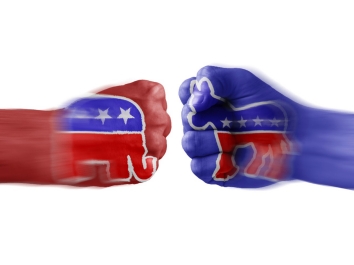Passion motivates, and that is shown by a new survey result which claims that undecided voters are also less likely to vote at all. Either they don't care - one party brags about their stock market gains while the other claims they'll be better for the economy - or they don't believe their vote matters. Like voters in California, unless Democrats are able to overturn the Electoral College.
The results from the British Election Study claim that 40 percent of voters there are undecided. It's complete nonsense, of course, internet panels are even less valid than more rigorous surveys, even if you use 10 years' worth, and people routinely lie so they can feel nonpartisan. If true, they are also less likely to vote. Like the US, England has people who have never voted for anything other than one party and never will, and if these survey results are true, Tory and Labour need to get that 29% rabidly partisan number up. Labour can do it by appealing to their anti-Semitic base while Tories can try and take back power by calling for a less stagnant economy. A lot like the U.S.

Credit: iStockPhoto.com/Aquir
If they don't, independents have even more power even as they are less likely to bother. The number of self-identified non-partisans was over 54% but the turnout in 2024 was the lowest percentage since 2001, when the Tories had a sock puppet opponent to Tony Blair. Everyone knew the opposition had no chance so few in either party bothered to vote.
To win elections, the survey results find, mobilize men and old people.
America may be a different country, but the voting culture seems very similar.



Comments